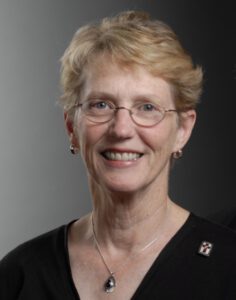I grew up in a family that went to church, but didn’t make a fuss about it. My parents primarily sought a place with an excellent music program and literate preaching. They also were in full flight from the high-pressure evangelism they had known as children. They were the progressives of their day. I went to Sunday School until I declared in 8th grade that it was stupid and refused to go anymore. The church responded by creating a special job for me, assisting the Sunday School superintendent. Bill was a nice young man and treated me as a colleague as we distributed the pamphlets and collected the offering from each class. My skepticism was not questioned or ridiculed. At the same time, that congregation allowed me to sing with the adult choir where I reveled in the challenge to read the music of the classical choral repertoire and perform each week in the midst of voice majors from the university and volunteers from the congregation who were fine musicians. This music inspired and touched my soul.
In graduate school I stopped going to church. It just didn’t fit well in the schedule of working on theatrical productions, writing papers, and socializing with other students. But when my family moved to Fayetteville AR and my primary role became mother and faculty wife, I was open again to going to church. My daughter, a toddler, loved the nursery and I loved the “adult time” of worship. Soon I began searching out opportunities for adult education at the church. I was always wary, however, of pressure to profess faith or of any place where my skepticism and doubt might be made public. We soon moved to Columbia MO and joined the church. And, again, I sought out every opportunity to study and read and explore theology and faith, always questioning.
So, imagine my surprise when I was offered a position on the church staff, temporarily and part time, as Director of Youth and Adult Ministries. My first response was, “But I’m not sure I believe in God!” The pastor replied, “Well, this is a good place to ask that question.” So I began to claim my identity as a religious educator with permission to make the congregation a place to ask even the most fundamental questions about faith. I started groups that read Paul Tillich, Dietrich Bonheoffer, and Hans Kung. I encouraged confirmation classes to ask questions rather than accept answers. I sought to liberate people from ideas about God and Jesus that were oppressive and challenge everyone to reflect theologically on all aspects of life. That is my passion. It has enlivened my research, teaching, and ministry for nearly 40 years. As a reflective practitioner, I sought to articulate theories that could help others lead liberating religious education. I went back to school and eventually attained an EdD in religious education. Shortly after that, I co-authored Educating Christians which was an opportunity to express those commitments about the practice of religious eduation.
My first scholarship was in theater and communication. Theories from those fields are still part of my value system. Other primary intellectual sources are feminist theology (although I now recognize its limits due to its lack of recognition of white privilege) and naturalistic qualitative research. I have also deeply appreciated Parker Palmer, James Fowler, Thomas Groome, Mary Elizabeth Moore, Maria Harris, Charles Foster, and Jack Seymour among others.
In 1998 I became a professor in my denomination’s seminary. My energy shifted to preparing new leaders who might carry my passion for liberating people from a faith that oppresses. These leaders are now sprinkled throughout my denomination and witnessing to the liberating Word of God. The ethnographic research projects I have published stem from that passion to hear people into speech and make spaces where they can escape old oppressive ideas and embrace a God who liberates and includes all. I have particularly exhorted my students to teach the Bible because I am appalled at how poorly our sacred book is understood in the Protestant churches. As an extension of my commitment to learn by listening to the people of God, I have sought to help others in the church listen deeply and hear what God is doing in our midst. Perhaps if we can discern what God is doing, we might join in the misseo Dei!
